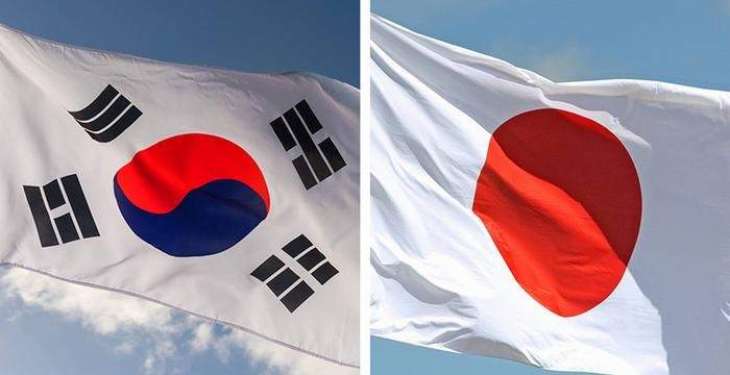The outbreak of the novel coronavirus respiratory disease, COVID-19, is not only affecting global markets, but also began taking its toll on world politics by fueling long-standing grievances between South Korea and Japan as the two countries enforced mutual travel restrictions over the virus concerns
MOSCOW (Pakistan Point News / Sputnik - 09th March, 2020) The outbreak of the novel coronavirus respiratory disease, COVID-19, is not only affecting global markets, but also began taking its toll on world politics by fueling long-standing grievances between South Korea and Japan as the two countries enforced mutual travel restrictions over the virus concerns.
Over 100 countries are now affected by COVID-19 with the total number of confirmed cases worldwide having surpassed 110,000, according to the World Health Organization. The global spread of the new deadly strain of coronavirus has hit the world's markets, but the crisis seems to start having political repercussions as well.
With South Korea ranking second after China in the number of confirmed COVID-19 cases, the Japanese government decided on Thursday to impose mandatory two-week quarantine for arrivals from its two neighbors as part of the virus response measures. Tokyo said it would also revoke all already issued visas for Chinese and South Korean citizens and temporarily suspend visa-free travel from Hong Kong, Macau and South Korea.
The measures caused an outcry from Seoul, which announced on Friday it would similarly suspend visa waiver program for Japan, invalidate already issued visas for Japanese citizens and imposed special entry procedures for all foreigners arriving from Japan. Both nations enforced their restrictions against each other on Monday. Apart from Japan, more than 100 countries have imposed travel restrictions against travelers from South Korea so far. However, Japan is the only country to face reciprocal steps over its move.
According to Antonio Fiori, an associate professor of the University of Bologna, the very wording of Seoul's steps as "countermeasures" and "reciprocal measures" indicates the political nature of the move, adding that mutual travel restricts were only "the latest flashpoint in an unresolved dispute."
"The bilateral relationship between these two countries is always like a pressure cooker about to blow, and every little friction contributes to evoke all different sources of tension ... This recent episode centered around the coronavirus demonstrates that unless the real sources of antagonism between the two countries are solved everything can contribute to ignite new tensions," Fiori told Sputnik.
"The two countries could have had a more cooperative approach, at least in this moment, and there could have been consultations before the announcement of the final decision to impose curbs on travelers," he added.
Brand Glosserman, the deputy director of the Center for Rule Making Strategies at the Tama University in Japan, noted that the row was particularly dispiriting in the context of the efforts taken by both sides to calm tensions caused by a series of tit-for-tat trade restrictions and to save a crucial military intelligence sharing pact, which was on the edge of collapse in last November.
"So after getting past the rough spots, we now have these unexpected coronavirus retaliations that are now blowing things up," Glosserman told Sputnik.
The expert noted that it was unclear how further things might escalate between the countries.
"It is hard for them in the context of coronavirus, particularly, coronavirus responses, to go further. But the problem is always that there are still other elements of the relationships. It upends the progress that has been made in November. It once against puts the two governments against each other rather than sort of helping them building the shared understanding," he said.
According to Fiori, the latest tensions between Seoul and Tokyo are also critical for the interests of the US in the region.
"These continuous clashes between the two most intimate allies of Washington are not appreciated by the Americans, especially because of the growing dimensions of China," the expert said.
Glosserman, in turn, asserted that, with the US administration's demands for a multiple increase in military cost sharing by both Japan and South Korea, the trilateral cooperation was at great risk.
"President [Donald] Trump has great suspicions about the value these alliances, and so this is just one more reason for each of them to dig their heels in even further and so it has the potential to make a real mess of the trilateral cooperation and bilateral Japan-Korea cooperation," he said.
The expert also noted that North Korea's launch of projectiles in the Sea of Japan earlier today, which could have reminded Tokyo and Seoul of the need to cooperate, was mostly ignored and "lost in the noise."
As of Monday, the number of COVID-19 cases neared 7,500 in South Korea, while Japan now has 1,200 people who contracted the disease, with about 700 of them from a virus-stricken cruise ship that was quarantined in Yokohama last month.




